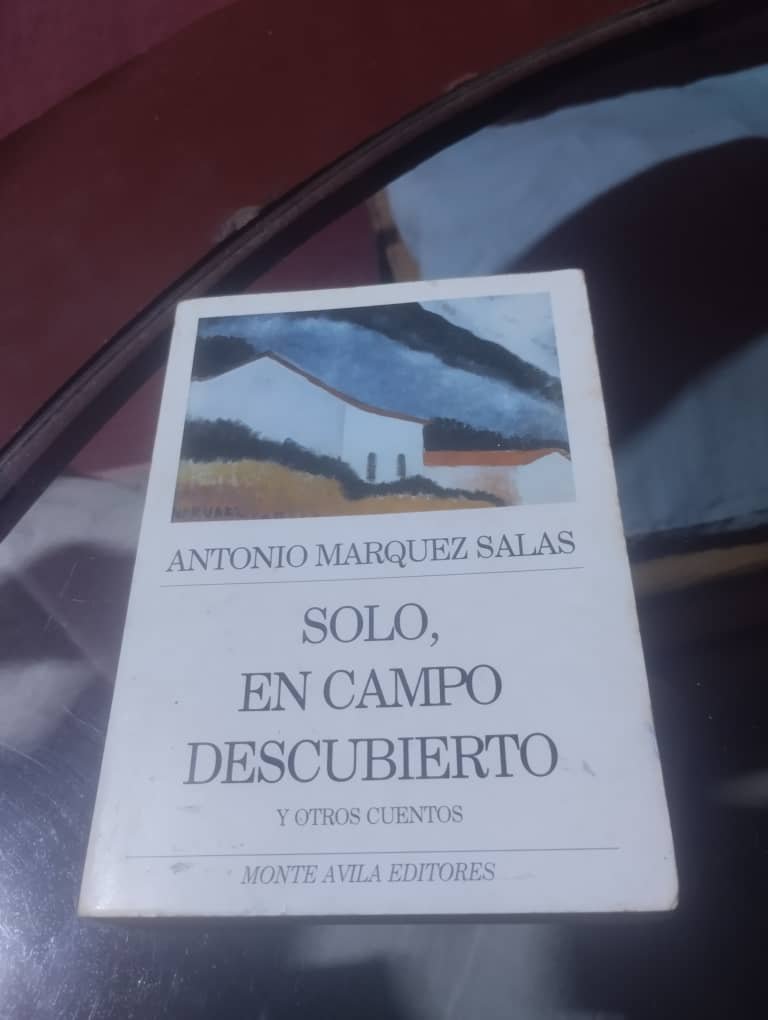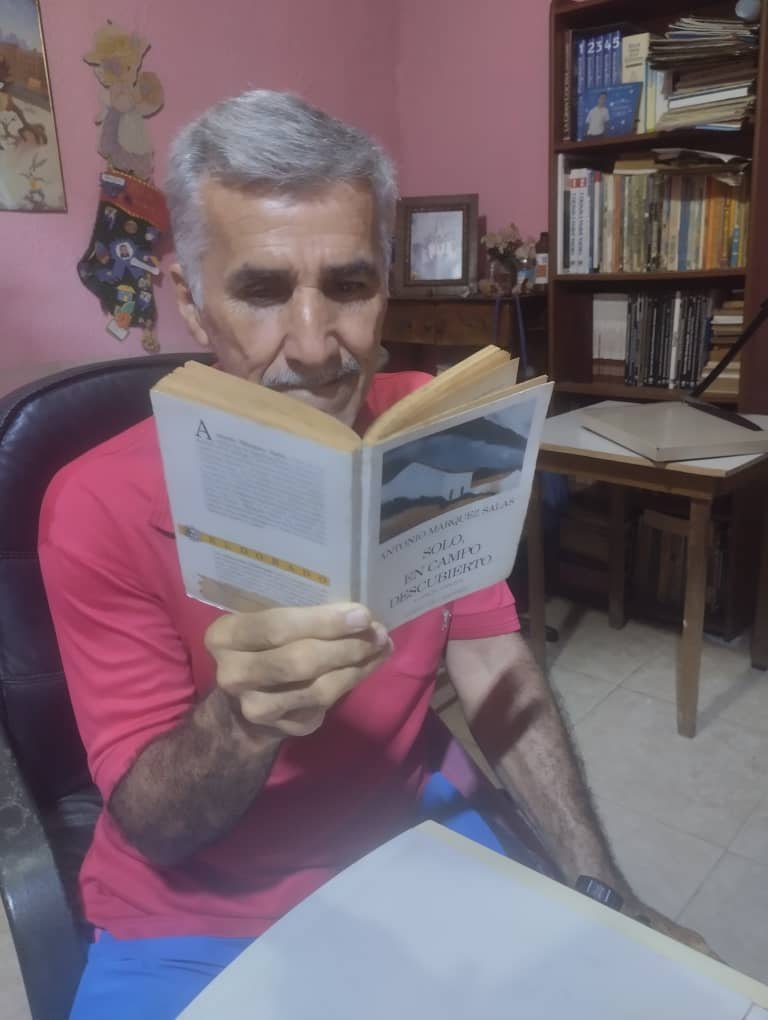Today I am going to share my impressions about the book of short stories Alone, in open field by the Venezuelan author Antonio Márquez Salas, considered one of the best representatives in the art of storytelling of the 20th century. According to some literary categories to define, characterize or identify a work and its structure, the prose of this author is full of literary resources, where he expresses his feelings, emotions and intimate thoughts in a subjective way.
I consider that these magnificent narratives possess aesthetic beauty due to the structure and the poetic language itself. He uses a lot of literary resources where the metaphor is the one that commands most of his stories. Criticizing this writer is quite complex given how carefully and well crafted his writing is, so I invite everyone to read this book.

Continuing his splendid stories, "Alone, in open field" is about five intense monologues, the one with this title tells us about the discovery of Aaron Torrealba's corpse in the middle of the field, then he is taken to the town. The character in question reaches the magnitude of a hero. It also relates this story to the bible.
Another of the stories is "Like God", in which we meet a boy, whose age is not specified, who has severe mental difficulties and physical deformities. Then other characters appear. Here the narrator makes a sharp social critique, where the religious aspect is seen between the lines.
With "The man and his green horse" he wins in 1947 the prize of the contest of the newspaper El Nacional. This extraordinary and marvelous story has destructive fragments, thoughts that can impose themselves before reason.

In almost all the stories it is difficult to establish the time and space where the action takes place.
In "Salah Har and his thirty-two women", a strange character identified in the title and the members of his harem, directing the texts to each of these women, and their sexual behaviors. And the Muslim locality of Africano from the Middle East.
In this work, Antonio Marquez Salas, gives us an account of the human condition from the existential and social level. We can see his influence by the context and the use of a symbolic lyricism.
Versión en Español
Hoy voy a compartir mis impresiones sobre el libro de cuentos Solo, en campo descubierto del autor venezolano Antonio Márquez Salas, considerado uno de los mejores representantes en el arte de narrar del siglo XX. Según algunas categorías literarias para definir, caracterizar o identificar una obra y su estructura, la prosa de este autor está llena de recursos literarios, donde expresa sus sentimientos, emociones y pensamientos íntimos de manera subjetiva.
Considero que estas magnificas narrativas poseen belleza estética por la estructura y el lenguaje propiamente poético. Usa muchísimos recursos literarios donde la metáfora es la que comanda la mayoría de sus relatos. Hacer una crítica a este escritor es bastante complejo dado el cuidadoso y lo bien trabajado que esta su escritura, de allí que invito a todos a leer este libro.

Dándole continuidad a sus espléndidos cuentos "Solo, en campo descubierto" trata de cinco monólogos intensos, el que lleva este título nos habla del descubrimiento del cadáver de Aarón Torrealba en medio del campo, luego es llevado al pueblo. El personaje en cuestión alcanza la magnitud de un héroe. Además relaciona este cuento con la biblia.
Otro de los cuentos es "Como Dios", en el cual nos encontramos a un niño, del cual no precisan la edad, quien tiene severas dificultades mentales y deformaciones físicas. Luego van apareciendo otros personajes. Acá el narrador realiza una aguda crítica social, donde el aspecto religioso se asoma entre líneas.
Con "El hombre y su verde caballo" gana en 1947 el premio del concurso del diario El Nacional. Este relato extraordinario y maravilloso, posee fragmentos destructores, pensamientos que pueden imponerse ante la razón.

En casi la totalidad de los cuentos es difícil establecer el tiempo y el espacio donde se desarrolla la acción.
En "Salah Har y sus treinta y dos mujeres", un extraño personaje identificado en el título y las integrantes de su harén, dirigiendo los textos a cada una de estas mujeres, y sus conductas sexuales. Y la localidad musulmana de Africano del medio oriente.
En esta obra, Antonio Márquez Salas, nos da cuenta de la condición humana desde el plano existencial como social. Podemos ver su influencia por el contexto y el uso de un lirismo simbólico.
✓Photos from my personal gallery, edited with Fotocollage.
✓Text translated with DeepL.
✓Fotos de mi galería personal, editadas con Fotocollage.
✓Texto traducido con DeepL.
En estas obras el autor se centra en lo complejo que puede ser la condición humana, sus luchas internas y la relación que se tiene con nuestro entorno y las decisiones que pueden marcar el futuro.
Así es, cada personaje tiene su lucha y tiene que vivir con sus propios conflictos y la mirada social.
Gracias por pasar. Saludos.
La condición humana siempre es motivo para propiciar profundas reflexiones que parten de las propuestas que encontramos en los textos literarios. Pronto leeré esta obra.
Así es, hay mucho para analizar en esta antología.
Congratulations @eduards1! You have completed the following achievement on the Hive blockchain And have been rewarded with New badge(s)
Your next payout target is 1000 HP.
The unit is Hive Power equivalent because post and comment rewards can be split into HP and HBD
You can view your badges on your board and compare yourself to others in the Ranking
If you no longer want to receive notifications, reply to this comment with the word
STOPCheck out our last posts: